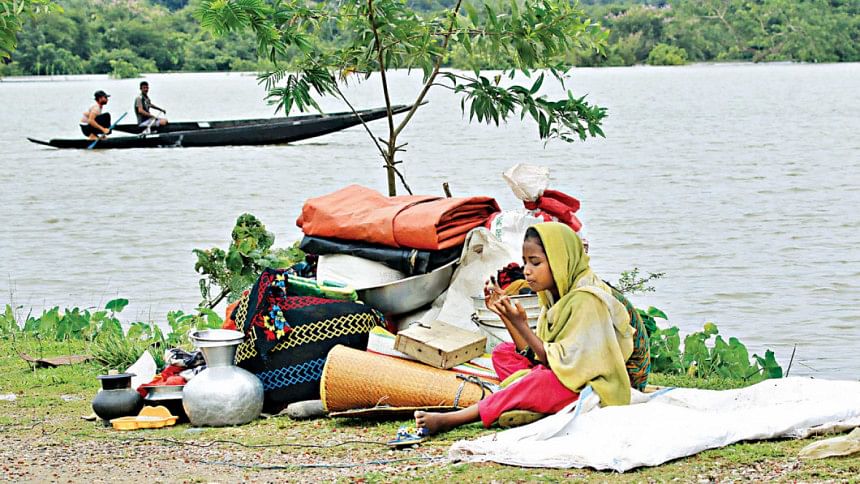Climate Adaptation: Address inequality while forming policies, says study

Despite the existence of policies, strategies, and plans to address climate change as a major concern, gaps still remain in the engagement of marginalised communities in climate action, according to a new study.
The study stated that impacts of climate change disproportionately affect marginalised communities.
The study, titled "Socio-economic Marginalisation and Local Level Adaptation to Climate Change: The Case of Manta/Bede Community in Jorakhal, Rajapur-Bhola, Bangladesh," analyses the socially constructed realities of the impacts of climate change in the coastal areas of Bangladesh.
Ahmed Abidur Razzaque Khan, assistant professor at ULAB, and Jamshed Al Zubaidi, a research affiliate at Chittagong University of Engineering and Technology, jointly presented the paper at the First Development Studies International Conference Dhaka 2024 today.
It was the second day of the conference, organised by the Department of Development Studies of Dhaka University and Daily Bonik Barta at a city hotel.
The study was conducted on 800 people from the Manta/Bede community living at Jorakhal in Bhola for the last 15 years.
The issue of inequality should be addressed while formulating and implementing inclusive development policies and designing climate change adaptation and mitigation policy strategies, said the study.
The study recommends that such intersectional vulnerable communities need inclusive programmes for their sustainable livelihood and to preserve their cultural well-being.
Another paper, titled "Untapped Potential of Bangladeshi Migrants in Southeast Asia: Governance Deficiencies and the Reverse Development," examines the untapped potential of Bangladeshi migrants in Southeast Asia and highlights the shortcomings in governance and their impact on reverse development.
"Despite being an important source of labour for the region's economies, Bangladeshi migrants often face systemic challenges that limit their full integration and contribution," the study said.
AKM Ahsan Ullah from University of Brunei Darussalam presented his study virtually at the conference.
The researcher interviewed over 103 migrant workers from Brunei, Malaysia, and Singapore who reported being unemployed or underpaid over the past two years.
Governance shortcomings, such as inefficient policies, bureaucratic barriers, and insufficient protective mechanisms, hinder migrants' access to opportunities and rights, creating a cycle of marginalisation and exploitation, said the study.
This study explored how migrants become underemployed or unemployed despite the promise of a full-time job, and how this affects the reverse.
It emphasised the urgent need for substantial governance reforms to unlock their socioeconomic potential.

 For all latest news, follow The Daily Star's Google News channel.
For all latest news, follow The Daily Star's Google News channel. 



Comments